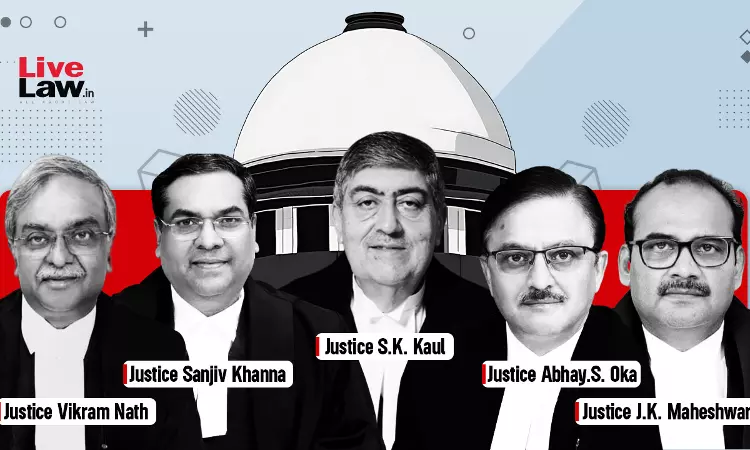Article 20(1) Of Constitution Doesn't Bar Retrospective Application Of Procedural Changes In Criminal Trial : Supreme Court
Awstika Das
12 Sept 2023 10:13 AM IST

Next Story
12 Sept 2023 10:13 AM IST
A Supreme Court constitution bench on Monday(September 11) reiterated that any change in procedure after an offence is committed would not be unconstitutional on grounds of the bar on the retrospective application of ex post facto laws contained in Article 20(1) of the Constitution, since procedural matters were not covered by the said clause. While holding that its...
